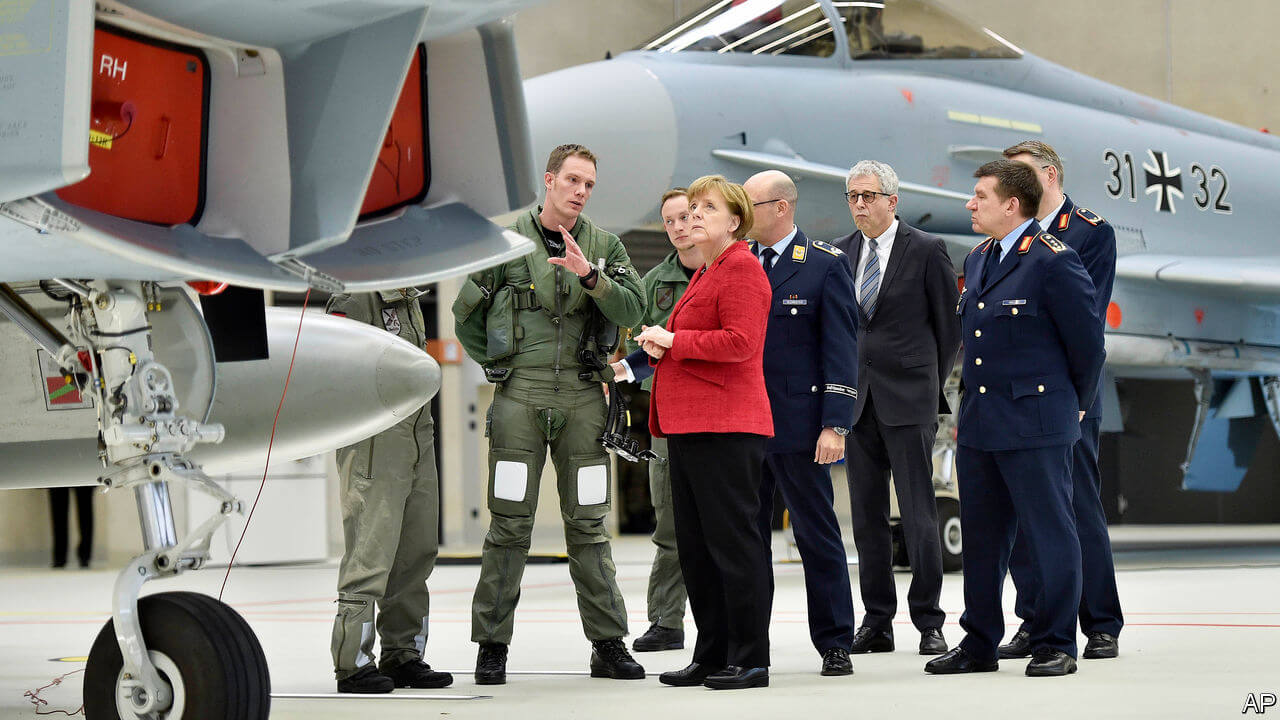The Peace Research Institute Frankfurt (PRIF) published a report on Sunday assessing the compliance of Germany’s policy on exporting arms with the European Union’s (EU) criteria on the issue. The EU’s law says that member states must maintain “respect for human rights and international humanitarian law by the country of final destination”. The criteria also require member states to ensure the “maintenance of peace, security and stability in a region”.
However, the report found that Germany has “repeatedly violated these criteria” by supplying arms to countries that use the weapons for violation of human rights. PRIF said, “Germany licenses and exports weapons of war and armaments to countries affected by war and crisis, to countries with human rights violations and to regions of tensions.” The study cited the example of the 2014 protests in Mexico, during which the police forces used German assault rifles against the demonstrators.
Germany’s arms export policy has been previously criticised by other commentators too. Alexander Lurz, the disarmament expert for the Greenpeace, speaking to AFP, said, “German weapons are systematically appearing in war zones and in the hands of dictators.” He additionally called upon policymakers to implement a “strict arms export law that prohibits exports to developing countries and puts an end to this deliberate, systematic undermining of export guidelines.” However, with approval ratings of Germany’s policy on exporting weapons at around 60%, such a U-turn in German’s strategy is highly unlikely.
Germany’s arm’s policy also highlights its hypocrisy in the crisis in Yemen. In June, Germany announced its decision to provide $140 million as humanitarian relief to Yemen.
Minister of State @NielsAnnen during virtual donor conference for #Yemen: It is one of the biggest and most serious man-made humanitarian crises. #COVID19 might cause further devastation. Therefore, Germany is providing 125 million euros in humanitarian aid. pic.twitter.com/UjQA2AYdFu
— GermanForeignOffice (@GermanyDiplo) June 2, 2020
Yet, German manufacturers continue to export arms to several countries that were actively worsening the crisis in the region. Since 2019, German entities have exported weapons worth over $1.1 billion to Egypt, the UAE and other countries that are in coalition with Saudi Arabia in its war against the Houthi rebels in Yemen. Additionally, Bahrain, Jordan and Kuwait, all of whom have supported the Saudi-led alliance in orchestrating airstrikes in Yemen, have also been supplied arms and ammunitions by German companies. Apart from violating the EU laws on the issue, it is also against the German authorities’ 2018 decision to discontinue exporting arms to countries that were “directly participating in the Yemen war”.
Also Read: UK to Resume Arms Exports to Saudi Arabia Despite Concerns of Use in Yemen War
However, Germany is not alone in its hypocritical stand in Yemen. The United Kingdom, too, has been criticised for its choice to implement policies against the 2019 ruling of the UK court, which held that the UK government’s decision to continue exporting licensed military equipment to the Gulf power was unlawful. The judges held that incumbent ministers had no conclusive assessments and had made no attempts to gather such information that absolved allegations of the Saudi-led coalition’s international law violations during the Yemen conflict. In their decision, the judges also said that Johnson, then-Trade Secretary Liam Fox and other important ministers had, in 2016, illegally signed an arms export deal with Saudi Arabia without assessing its risk to civilians. However, recently, the UK announced its decision to resume its weapons sales to Riyadh despite widespread concern that the procured armaments could be used in the Yemen war.
Also Read: Assessing the UAE’s Role in Yemen and Libya
Similarly, the Trudeau-led government in Canada, too, has a superficial stand on the issue. While the government has pledged around $200 million to Yemen since 2015, it continues to export arms to Saudi Arabia. In fact, in 2019, Canada doubled its arms exports to Saudi Arabia and provided the country with machine guns, armoured vehicles and artillery systems.
Also Read: Is Trudeau’s “Two-Faced” Leadership Eroding Canada’s Diplomatic Capital?

